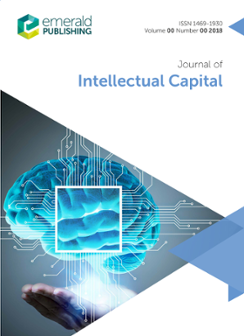配置绿色智力资本实现双元环境战略——基于资源配置理论
IF 6.8
2区 管理学
Q1 BUSINESS
引用次数: 1
摘要
由于单一的环境战略不足以应对企业所面临的各种制度力量,本研究提出了灵活的环境战略,旨在探索其驱动因素。基于意识-动机-能力(AMC)框架和资源协调理论,研究了感知制度力、绿色智力资本和悖论认知对实现双灵巧环境战略的配置效应。设计/方法/方法为了探讨这些配置效应,本研究使用了来自317家中国制造企业的两波调查数据和模糊集定性比较分析(fsQCA)方法。研究发现:有三条等价的配置路径导致双灵巧环境策略。研究结果表明,具有悖论认知的企业在不同的感知制度力量下能够更好地协调GIC以实现双灵巧的环境战略。本研究还发现了不同条件之间的三种替代效应。原创性/价值本研究将双灵巧性概念引入环境战略领域,并利用AMC框架探索驱动双灵巧性环境战略的配置路径,对现有文献做出了贡献。本文章由计算机程序翻译,如有差异,请以英文原文为准。
Configuring green intellectual capital to achieve ambidextrous environmental strategy: based on resource orchestration theory
PurposeSince a single environmental strategy is not sufficient to deal with the various institutional forces that firms are facing, this study proposes ambidextrous environmental strategy and aims to explore its drivers. Based on the awareness-motivation-capability (AMC) framework and resource orchestration theory, the authors investigate the configurational effects of perceived institutional force, green intellectual capital (GIC) and paradox cognition on achieving ambidextrous environmental strategy.Design/methodology/approachTo explore these configurational effects, this study uses two-waved survey data from 317 Chinese manufacturing firms and the fuzzy set qualitative comparative analysis (fsQCA) method.FindingsThere are three equivalent configurational paths leading to ambidextrous environmental strategy. The findings suggest that firms with paradox cognition can better orchestrate GIC to achieve ambidextrous environmental strategy under different perceived institutional force. This study also finds three substitution effects between distinct conditions.Originality/valueThis study contributes to the existing literature by introducing the concept of ambidexterity into the field of environmental strategy and using the AMC framework to explore the configurational paths driving ambidextrous environmental strategy.
求助全文
通过发布文献求助,成功后即可免费获取论文全文。
去求助
来源期刊

Journal of Intellectual Capital
Multiple-
CiteScore
14.50
自引率
13.30%
发文量
27
期刊介绍:
The Journal of Intellectual Capital is a peer-reviewed international publication dedicated to the exchange of the latest research and best practice information on all aspects of creating, identifying, managing and measuring intellectual capital in organisations. The journal publishes original research and case studies by academic, business and public sector contributors on intellectual capital strategies, approaches, frameworks, tools, techniques and technologies in order to increase the understanding of intellectual capital within the context of the modern knowledge economy. The focus of this journal is on the identification of innovative intellectual capital strategies and the application of theoretical concepts to real-world situations.
 求助内容:
求助内容: 应助结果提醒方式:
应助结果提醒方式:


